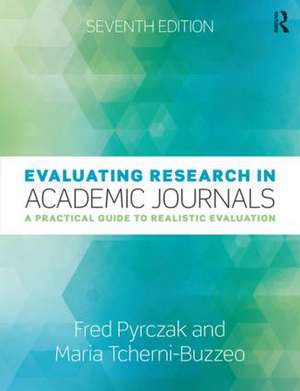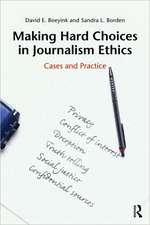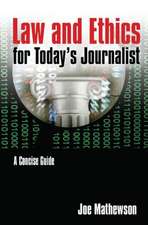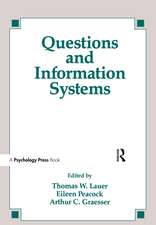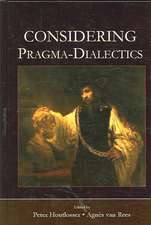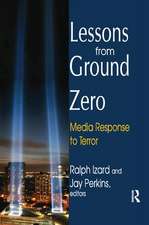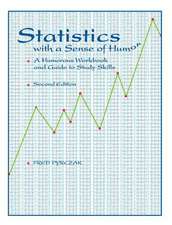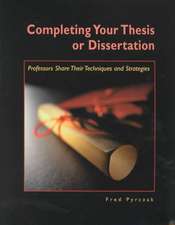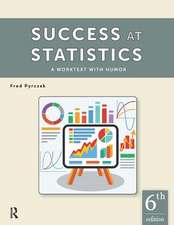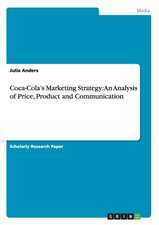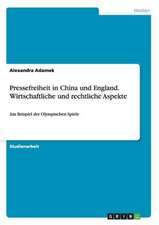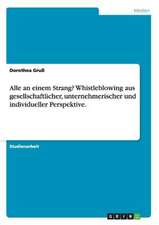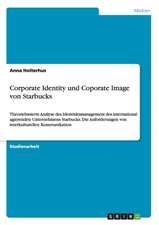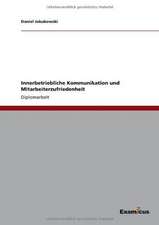Evaluating Research in Academic Journals: A Practical Guide to Realistic Evaluation
Autor Maria Tcherni-Buzzeo, Fred Pyrczaken Limba Engleză Paperback – 29 oct 2018
The book avoids oversimplification in the evaluation process by describing the nuances that may make an article publishable even when it has serious methodological flaws. Students learn when and why certain types of flaws may be tolerated, and why evaluation should not be performed mechanically.
Each chapter is organized around evaluation questions. For each question, there is a concise explanation of how to apply it in the evaluation of research reports. Numerous examples from journals in the social and behavioral sciences illustrate the application of the evaluation questions, and demonstrate actual examples of strong and weak features of published reports. Common-sense models for evaluation combined with a lack of jargon make it possible for students to start evaluating research articles the first week of class.
New to this edition
- New chapters on:
- evaluating mixed methods research
- evaluating systematic reviews and meta-analyses
- program evaluation research
- Updated chapters and appendices that provide more comprehensive information and recent examples
- Full new online resources: test bank questions and PowerPoint slides for instructors, and self-test chapter quizzes, further readings and additional journal examples for students.
| Toate formatele și edițiile | Preț | Express |
|---|---|---|
| Paperback (2) | 406.57 lei 3-5 săpt. | +28.88 lei 4-10 zile |
| Taylor & Francis – mar 2024 | 406.57 lei 3-5 săpt. | +28.88 lei 4-10 zile |
| Taylor & Francis – 29 oct 2018 | 431.03 lei 6-8 săpt. | |
| Hardback (2) | 939.86 lei 6-8 săpt. | |
| Taylor & Francis – mar 2024 | 939.86 lei 6-8 săpt. | |
| Taylor & Francis – 17 oct 2018 | 1121.01 lei 6-8 săpt. |
Preț: 431.03 lei
Preț vechi: 507.09 lei
-15% Nou
Puncte Express: 647
Preț estimativ în valută:
82.48€ • 86.33$ • 68.65£
82.48€ • 86.33$ • 68.65£
Carte tipărită la comandă
Livrare economică 01-15 aprilie
Preluare comenzi: 021 569.72.76
Specificații
ISBN-13: 9780815365662
ISBN-10: 0815365667
Pagini: 218
Ilustrații: 3 Tables, black and white; 2 Line drawings, black and white; 2 Illustrations, black and white
Dimensiuni: 210 x 280 x 12 mm
Greutate: 0.56 kg
Ediția:7th edition
Editura: Taylor & Francis
Colecția Routledge
Locul publicării:Oxford, United Kingdom
ISBN-10: 0815365667
Pagini: 218
Ilustrații: 3 Tables, black and white; 2 Line drawings, black and white; 2 Illustrations, black and white
Dimensiuni: 210 x 280 x 12 mm
Greutate: 0.56 kg
Ediția:7th edition
Editura: Taylor & Francis
Colecția Routledge
Locul publicării:Oxford, United Kingdom
Cuprins
Introduction to the Seventh Edition
1. Background for Evaluating Research Reports
2. Evaluating Titles
3. Evaluating Abstracts
4. Evaluating Introductions and Literature Reviews
5. A Closer Look at Evaluating Literature Reviews
6. Evaluating Samples When Researchers Generalize
7. Evaluating Samples When Researchers Do Not Generalize
8. Evaluating Measures
9. Evaluating Experimental Procedures
10. Evaluating Analysis and Results Sections: Quantitative Research
11. Evaluating Analysis and Results Sections: Qualitative Research
12. Evaluating Analysis and Results Sections: Mixed Methods Research Anne Lee Kringen
13. Evaluating Discussion Sections
14. Evaluating Systematic Reviews and Meta-Analyses: Towards Evidence-Based Practice
15. Putting It All Together
Appendix A: Quantitative, Qualitative, and Mixed-Methods Research: An Overview
Appendix B: A Special Case of Program or Policy Evaluation
Appendix C: The Limitations of Significance Testing
Appendix D: Checklist of Evaluation Questions
1. Background for Evaluating Research Reports
2. Evaluating Titles
3. Evaluating Abstracts
4. Evaluating Introductions and Literature Reviews
5. A Closer Look at Evaluating Literature Reviews
6. Evaluating Samples When Researchers Generalize
7. Evaluating Samples When Researchers Do Not Generalize
8. Evaluating Measures
9. Evaluating Experimental Procedures
10. Evaluating Analysis and Results Sections: Quantitative Research
11. Evaluating Analysis and Results Sections: Qualitative Research
12. Evaluating Analysis and Results Sections: Mixed Methods Research Anne Lee Kringen
13. Evaluating Discussion Sections
14. Evaluating Systematic Reviews and Meta-Analyses: Towards Evidence-Based Practice
15. Putting It All Together
Appendix A: Quantitative, Qualitative, and Mixed-Methods Research: An Overview
Appendix B: A Special Case of Program or Policy Evaluation
Appendix C: The Limitations of Significance Testing
Appendix D: Checklist of Evaluation Questions
Notă biografică
Maria Tcherni-Buzzeo is an Associate Professor of Criminal Justice at the University of New Haven. She received her Ph.D. in Criminal Justice from the University at Albany (SUNY), and her research has been published in the Journal of Quantitative Criminology, Justice Quarterly, and Deviant Behavior.
Descriere
Evaluating Research in Academic Journals is a guide for students who are learning how to evaluate reports of empirical research published in academic journals. It breaks down the process of evaluating journal research into easy-to-understand steps, and emphasizes the practical aspects of evaluating research.
Recenzii
“Evaluating Research in Academic Journals: A Practical Guide to Realistic Evaluation is a textbook that must be adopted for anyone teaching a course in Research Methods. From the first day of class students can begin gathering the knowledge, jargon-free, to precisely and properly evaluate peer-reviewed academic research articles. The material presented is unique in its coverage not only of quantitative-based research, but also that involving qualitative, mixed methods, as well as action-oriented research. A student and instructor-friendly read that packs a powerful punch of information.” -- Penny M. Geyer, John Jay College, the City University of New York (CUNY), USA
“The latest edition of Evaluating Research in Academic Journals continues to improve on a classic 'how to' research text, and one that is written in an incredibly accessible manner. This book will be helpful to students, of all levels, backgrounds, and disciplines, who are evaluating existing scientific research for a dissertation or thesis project, a class paper, or even just to become better informed about the research on a given topic. Along with the other updates in the latest edition, the addition of a new chapter devoted entirely to evaluating qualitative research makes this text even more relevant and important to student and budding scientific researchers. At a minimum, this book should be in the personal academic library of every graduate student in a research-oriented field, bearing dozens of dog-eared pages, a fraying coffee-stained cover, and multiple creases along the spine from the many times it has been read and reread during the graduate school years (and beyond)." -- Kelly M. Socia, University of Massachusetts Lowell, USA
“This book is an incredibly useful complement to traditional research methods texts, which typically focus on idealized and abstracted procedures. Here, students are presented with the realities of the conduct of research and are given tools for assessing empirical articles from stem to stern. Checklists, examples, and exercises provide structured opportunities for students to apply their newfound skills.” -- Sonja Siennick, Florida State University, USA
“Evaluating Research in Academic Journals: A Practical Guide to Realistic Evaluation is itself an example of the hallmarks of the best academic writing—it's written and organized in a way that distills the complexities of academic research into a format that students will find digestible, intellectually engaging, and actionable. The text is written for students in academic programs, but it would also be helpful for authors as a final checklist before submitting their own work for peer-review.
Tcherni-Buzzeo and Pyrczak have expertly presented an intimidating topic for students in a way that students will find edifying, and dare I say even enjoyable! The text opens with guidelines for reviewing research and a reflective self-assessment. Each chapter guides students on a specific part of empirical research as presented in academic journals (e.g., beginning with evaluating titles, abstracts, and finishing with evaluating discussions) and includes built-in exercises with author commentary, guided class assignments, and real examples from the literature. This flow of the text will help make students better consumers of academic research and will set a solid foundation for those who wish to produce their own scholarly research in the future.” -- Michael Jenkins, University of Scranton, USA
“This is a wonderful book that aims to help students become intelligent consumers of research in the social and behavioral sciences by reading and evaluating it for themselves. It provides students with clear and practical advice about how to assess each aspect of an article, from beginning to end, with relevant examples and useful exercises. Best of all, the book encourages students not to expect perfection from the research they read; instead, it teaches them to accept the inherent limitations of the research process without thinking that all studies are equally flawed or undervaluing its cumulative contribution to knowledge.” -- Walter Forrest, School of Law, University of Limerick, Ireland
“The latest edition of Evaluating Research in Academic Journals continues to improve on a classic 'how to' research text, and one that is written in an incredibly accessible manner. This book will be helpful to students, of all levels, backgrounds, and disciplines, who are evaluating existing scientific research for a dissertation or thesis project, a class paper, or even just to become better informed about the research on a given topic. Along with the other updates in the latest edition, the addition of a new chapter devoted entirely to evaluating qualitative research makes this text even more relevant and important to student and budding scientific researchers. At a minimum, this book should be in the personal academic library of every graduate student in a research-oriented field, bearing dozens of dog-eared pages, a fraying coffee-stained cover, and multiple creases along the spine from the many times it has been read and reread during the graduate school years (and beyond)." -- Kelly M. Socia, University of Massachusetts Lowell, USA
“This book is an incredibly useful complement to traditional research methods texts, which typically focus on idealized and abstracted procedures. Here, students are presented with the realities of the conduct of research and are given tools for assessing empirical articles from stem to stern. Checklists, examples, and exercises provide structured opportunities for students to apply their newfound skills.” -- Sonja Siennick, Florida State University, USA
“Evaluating Research in Academic Journals: A Practical Guide to Realistic Evaluation is itself an example of the hallmarks of the best academic writing—it's written and organized in a way that distills the complexities of academic research into a format that students will find digestible, intellectually engaging, and actionable. The text is written for students in academic programs, but it would also be helpful for authors as a final checklist before submitting their own work for peer-review.
Tcherni-Buzzeo and Pyrczak have expertly presented an intimidating topic for students in a way that students will find edifying, and dare I say even enjoyable! The text opens with guidelines for reviewing research and a reflective self-assessment. Each chapter guides students on a specific part of empirical research as presented in academic journals (e.g., beginning with evaluating titles, abstracts, and finishing with evaluating discussions) and includes built-in exercises with author commentary, guided class assignments, and real examples from the literature. This flow of the text will help make students better consumers of academic research and will set a solid foundation for those who wish to produce their own scholarly research in the future.” -- Michael Jenkins, University of Scranton, USA
“This is a wonderful book that aims to help students become intelligent consumers of research in the social and behavioral sciences by reading and evaluating it for themselves. It provides students with clear and practical advice about how to assess each aspect of an article, from beginning to end, with relevant examples and useful exercises. Best of all, the book encourages students not to expect perfection from the research they read; instead, it teaches them to accept the inherent limitations of the research process without thinking that all studies are equally flawed or undervaluing its cumulative contribution to knowledge.” -- Walter Forrest, School of Law, University of Limerick, Ireland
